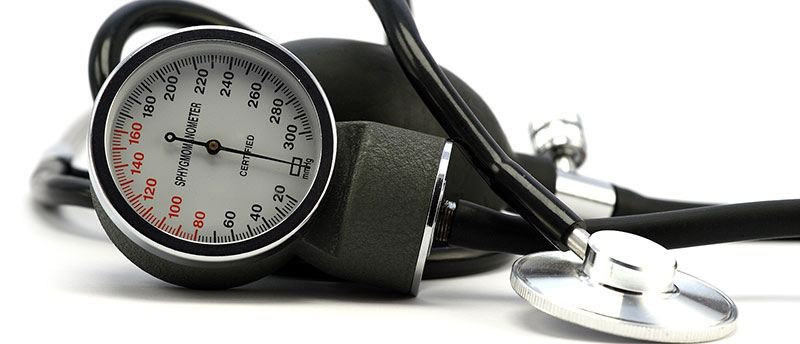ALERT: Do not stop taking prescribed blood pressure medication on your own. Consult a licensed physician to discuss potential alternatives.
Five Supplements Proven to Lower Blood Pressure

Blood pressure medications account for hundreds of millions of prescriptions yearly. They play a significant role in the fight against heart disease. But two popular blood pressure drugs have come under fire recently. Valsartan and losartan have been recalled due to carcinogenic contaminants.
Some versions of valsartan and losartan are still on the market and considered safe. However, some consumers may be interested in ways to decrease exposure to these drugs.
A simple internet search can reveal hundreds of "at-home" and "natural" blood pressure treatments. But do any of them work? Can they decrease exposure to potentially harmful blood pressure drugs?
The good news is that researchers have investigated a litany of alternative therapies. Some of them are clinically proven to decrease blood pressure. But, most have not been investigated as a full replacement for blood pressure drugs. Still, some patients may benefit from these alternative therapies.
In an effort to help consumers investigate these alternatives, we compiled the list below. It discusses alternative blood pressure therapies with the most compelling evidence. This list can serve as a conversation starter for patients discussing alternative blood pressure therapies with their doctor.
ALERT: Patients should NOT adopt any alternative blood pressure therapies without first consulting a licensed physician. A doctor can advise you which, if any, of the treatments below may be appropriate for your individual situation. Any alternative blood pressure management technique should be discussed with a physician.
Beetroot Juice
According to a meta-analysis (a study of studies), beetroot juice can lower blood pressure. Subjects who consumed beetroot juice experienced blood pressure drops of approximately 4.4 mm Hg. These study participants took daily doses of beetroot juice between 300 and 2,800 mg.
Doctors believe one specific component of beetroot juice may be responsible for its effect on blood pressure. Beetroot juice contains large amounts of the molecule NO3-. In the body, NO3- can be metabolized, eventually releasing functional nitrogen. This nitrogen can relax blood vessels.
|
Understanding Blood Pressure Doctors assess blood pressure with two measurements: systolic and diastolic blood pressure (SBP and DBP). Blood pressure measurements can be categorized as follows: |
|
| Normal | DBP < 80 mm Hg SBP < 120 mm Hg |
| Elevated | DBP < 80 mm Hg SBP between 120 and 129 mm Hg |
| High (Stage 1 Hypertension) |
DBP between 80 and 89 mm Hg SBP between 130 and 139 mm Hg |
| High (Stage 2 Hypertension) |
DBP > 90 mm Hg SBP > 140 mm Hg |
Magnesium
Magnesium supplements are often recommended as a sleep aid. But they can also affect blood pressure. According to several studies, magnesium can reduce systolic blood pressure by 3 to 4 mm Hg. It can also reduce diastolic blood pressure by 2.5 mm Hg.
Researchers say taking between 500 and 1000 mg of magnesium per day is optimal.
If a physician recommends taking magnesium, experts endorse a special type: chelated magnesium. This form of magnesium allows superior absorption and decreases the incidence of side effects like diarrhea.
Note: Experts say patients with kidney problems (severe renal insufficiency) should NOT take magnesium supplements.
Coenzyme Q10 (Ubiquinol)
Coenzyme Q10 (CoQ10) is an antioxidant found in fish and raw red meat. Data shows CoQ10 can reduce SBP by 11 mm Hg. It can also reduce DBP by 7 mm Hg. Researchers measured these effects in people taking more than 100 mg of CoQ10 daily for 4 weeks or more.
Scientists ascribe CoQ10's effects on blood pressure to a number of its properties, chiefly its status as an antioxidant.
Resveratrol
Resveratrol is a substance found in grapes. Its health benefits have been in the spotlight for years. But many people may be unaware of its powerful effects on blood pressure.
According to studies, resveratrol supplementation can reduce SBP by almost 12 mm Hg. This effect was only seen in patients taking higher doses, more than 150 mg of resveratrol per day.
Researchers attribute resveratrol's effects to multiple properties, many of which affect components of blood pressure and heart disease.
Melatonin
Melatonin is a natural hormone the body uses to regulate the sleep cycle. It has been a popular sleep aid for decades, but data shows it can also affect blood pressure.
Melatonin supplementation has been shown to reduce nighttime SBP by 6.1 mm Hg. It also reduced nighttime DBP by 3.5 mm Hg. Patients who experienced these effects took 2-5 mg melatonin daily for 7 to 90 days.
Researchers believe melatonin protects blood vessels from certain types of damage. It may also increase production of natural blood vessel relaxants.
Reminder: Discuss alternative blood pressure treatments with a licensed physician before using them. Only a doctor can advise which, if any, of these treatments may be appropriate and safe for you.
